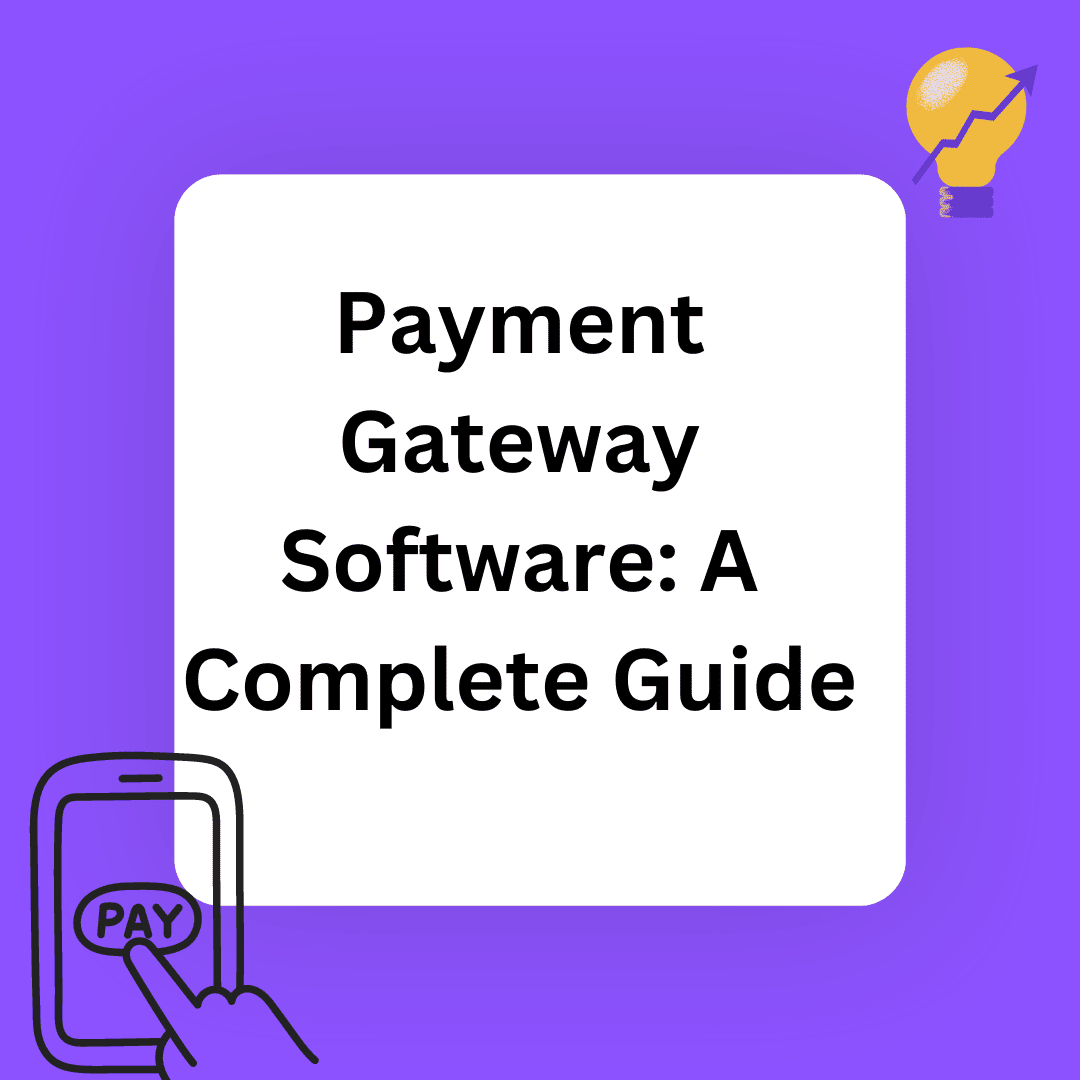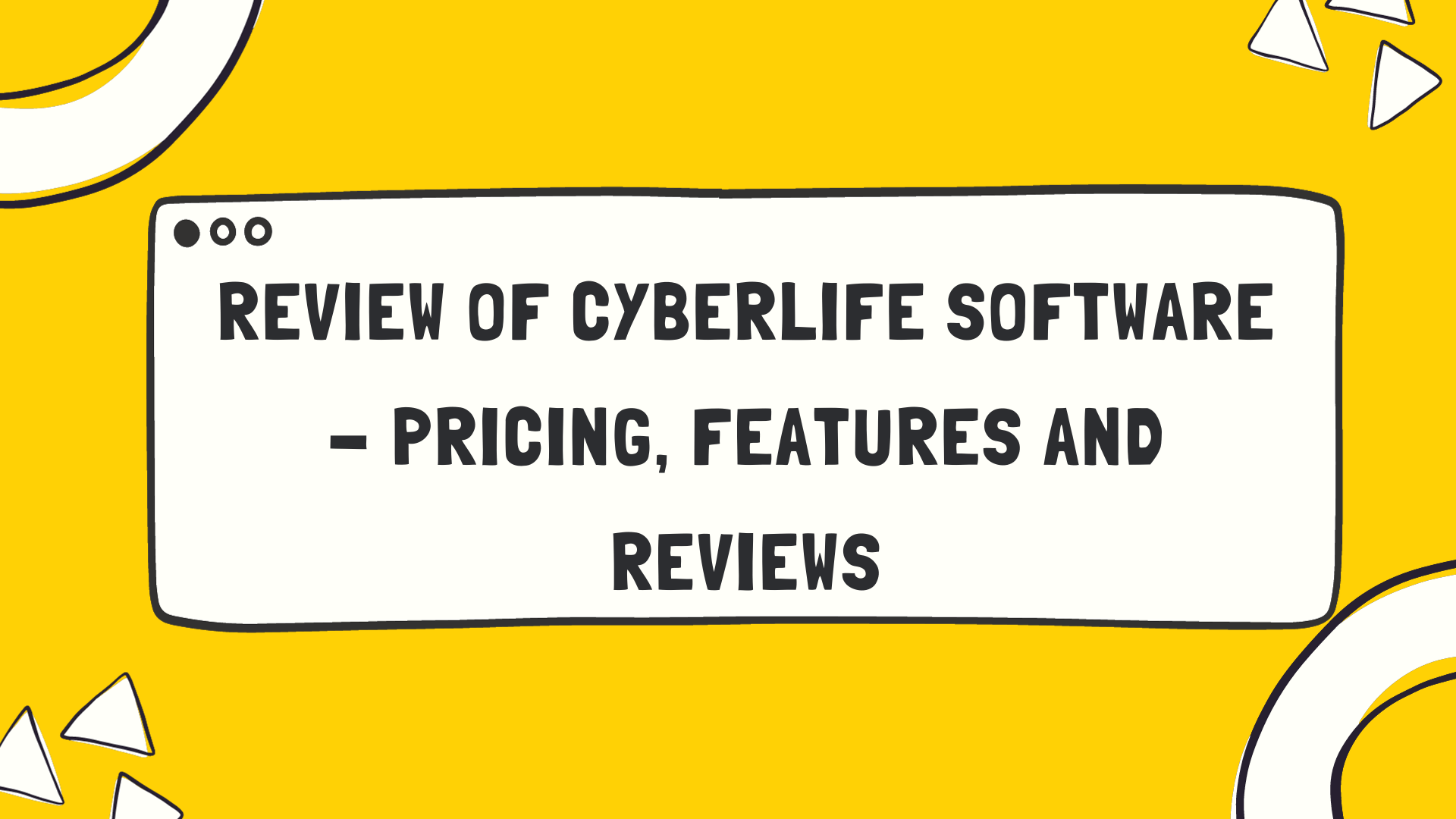Feeling overwhelmed with managing data from different business applications? You’re not alone, as many businesses struggle to integrate diverse systems and streamline workflows. This is where integration software steps in, aiming to simplify your tasks and boost productivity by allowing seamless communication between your applications.
In this article, we’ll explore the top 10 integration software options for 2023 that could be game-changers for your business operations.
Key Takeaways
- Integration software helps businesses streamline their processes by allowing different applications and systems to communicate and share data seamlessly.
- The top 10 integration software options for businesses in 2023 include ClickUp, HubSpot, Marketo, JitterBit, Integromat, Celigo, Cyclr, IFTTT, Zapier, and SureTriggers.
- These integration software tools offer features such as pre-built connectors, data mapping capabilities, automation of tasks, real-time data synchronization, and workflow management functionalities.
- Benefits of using integration software for businesses include streamlined workflows with reduced manual work and errors,
What is Integration Software?
Integration software is a crucial tool for businesses that allows different applications, systems, and databases to communicate and share data seamlessly. It helps streamline business processes, improve efficiency, and enhance decision-making by ensuring smooth data flow between various software solutions.
There are different types of integration software available, including middleware integration tools, application integration platforms (iPaaS), and data integration tools.
Definition and purpose
Integration software is a tool. It links different systems and apps. This means all the data can work together. So, a company can see all its info in one place. This helps make quicker and better choices for the firm’s success.
A business may use it to boost its digital change skills with stronger data ties.
Types of integration software
Integration software can be found in many types. Each type has a different use.
| Type | Description | Example(s) |
|---|---|---|
| Data Integration Software | Gathers and consolidates data from various sources. | SnapLogic, Talend |
| Application Integration Software | Connects applications to facilitate data sharing. | JitterBit |
| Cloud-Based Integration Platforms | Links cloud and on-site systems for seamless integration. | JitterBit |
| Middleware Integration Tools | Establishes connections between different systems. | Various middleware solutions |
| Integration Platforms as a Service (iPaaS) | Designed for cloud services and integrations. | SnapLogic |
| Open-Source Integration Tools | Customizable tools that can be adapted to specific needs. | Talend and other open-source options |
The Top 10 Integration Software for Businesses
Here are the top 10 integration software options for businesses in 2023: ClickUp, HubSpot, Marketo, JitterBit, Integromat, Celigo, Cyclr, IFTTT, Zapier, and SureTriggers.
ClickUp
ClickUp is a top pick for many businesses. It has tools that work well together. Businesses can keep track of their tasks and projects with it. ClickUp lets teams talk to each other in one place.
This stops the need for too many emails or meetings. Goals are easy to set and follow in this system. Teams can also make reports about how they are doing. There is even help available inside the system when needed, making it great for both big and small groups.
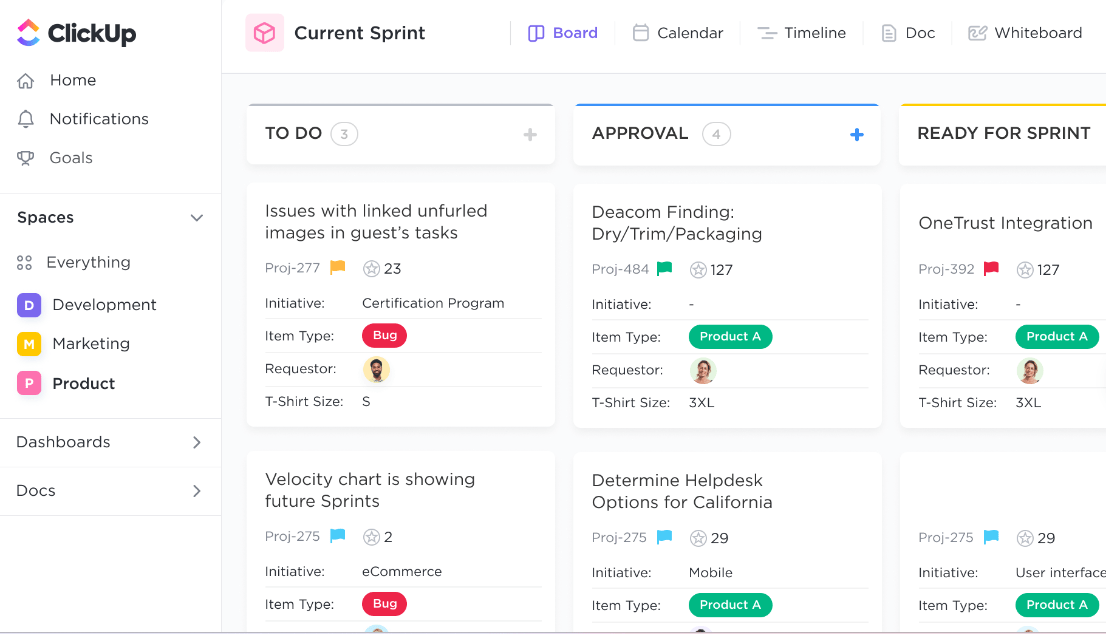
HubSpot
HubSpot is one of the top integration software tools for businesses in 2023. It offers a wide range of features and capabilities to help businesses automate their marketing, sales, and customer service processes.
With HubSpot, companies can integrate their CRM, email marketing, social media management, content management system (CMS), and more into one centralized platform. This makes it easier for teams to collaborate, track customer interactions, and streamline workflows.
HubSpot also provides powerful reporting and analytics tools to measure the effectiveness of marketing campaigns and identify areas for improvement. Overall, HubSpot is a comprehensive integration software solution that can benefit businesses looking to optimize their digital marketing efforts.
Marketo
Marketo is one of the top integration software tools for businesses in 2023. It offers a range of features and capabilities that can help businesses streamline their marketing efforts.
With Marketo, companies can automate their marketing campaigns, track customer interactions, and analyze data to make informed decisions. This integration software also allows businesses to integrate with other systems such as CRM platforms and social media channels.
Overall, Marketo is a powerful tool for businesses looking to enhance their marketing strategies and improve customer engagement.
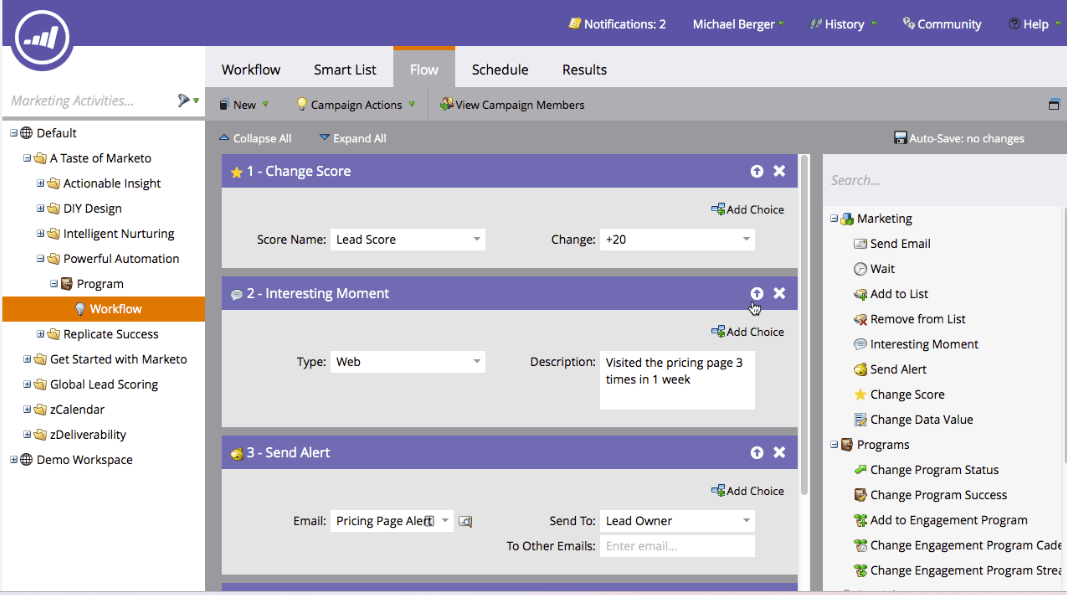
JitterBit
JitterBit is a cloud-based integration platform that can help businesses streamline their data and workflow processes. With JitterBit, you can easily connect different systems and applications, thanks to its pre-built connectors and data mapping capabilities.
It also offers API management and workflow features to automate tasks. JitterBit is a reliable choice for businesses looking to enhance their digital transformation and data integration capabilities in 2023.
Integromat
Integromat is a powerful integration software that can help businesses streamline their processes. It offers a range of features like workflow automation, data mapping, and API management.
With Integromat, businesses can easily connect different applications and systems to automate tasks and save time. It provides pre-built connectors for popular apps like Google Sheets, Slack, and Shopify.
Integromat also allows users to create custom integrations using its visual builder without having to write any code. Overall, Integromat is a user-friendly tool that can enhance the efficiency and productivity of businesses through the seamless integration of various systems and applications.
Celigo
Celigo is one of the top integration software solutions for businesses in 2023. It offers a range of features and capabilities that can streamline data integration and workflow processes.
With Celigo, businesses can connect various applications and systems to ensure seamless communication and data transfer. This integration software also provides pre-built connectors, allowing users to easily integrate popular business tools like CRM platforms or marketing automation software.
Celigo is known for its user-friendly interface and ease of use, making it a great choice for businesses looking to improve their digital transformation efforts.
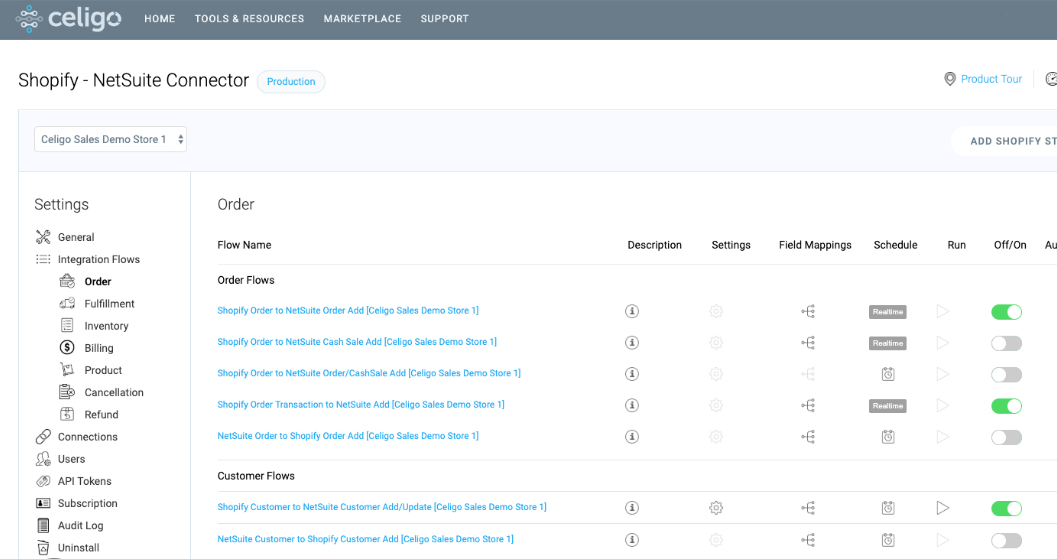
Cyclr
Cyclr is an integration software that helps businesses streamline their processes and connect different applications together. With Cyclr, companies can easily automate data integration and workflow processes, saving time and effort.
It offers a wide range of pre-built connectors, allowing businesses to integrate popular platforms like Salesforce, HubSpot, Shopify, and many more. Cyclr also provides a visual workflow builder that makes it easy for non-technical users to create custom integrations without any coding knowledge.
With its user-friendly interface and robust features, Cyclr is a top choice for businesses looking to enhance their integration capabilities in 2023.
IFTTT
IFTTT, which stands for “If This Then That,” is a popular integration software that allows users to connect and automate different apps, websites, and services. With IFTTT, you can create “applets” that trigger specific actions when certain conditions are met.
For example, you could set up an applet that automatically saves Gmail attachments to your Google Drive or sends you a notification when it’s about to rain. IFTTT supports a wide range of platforms and devices, making it easy to streamline tasks and improve productivity.
It’s user-friendly interface and extensive library of pre-built applets make it a great choice for businesses looking to simplify their workflows and boost efficiency.
Zapier
Zapier is one of the top integration software tools mentioned in the article. It allows businesses to connect and automate workflows across different apps without any coding knowledge.
With Zapier, you can create “Zaps” that trigger an action in one app when a specific event happens in another app. For example, you can automatically save Gmail attachments to Google Drive or add new HubSpot contacts to MailChimp.
Zapier supports over 2,000 apps and offers a user-friendly interface, making it easy for businesses to streamline their processes and save time. Whether it’s integrating project management tools, CRM systems, or marketing platforms, Zapier is a versatile solution for automating tasks and improving efficiency within your business operations.
SureTriggers
SureTriggers is another top integration software for businesses. It offers a range of features to automate data integration and workflow processes. With SureTriggers, businesses can streamline their operations and improve efficiency.
This software is known for its user-friendly interface and easy setup process, making it accessible to businesses of all sizes. It also provides real-time data availability, ensuring that companies have the most up-to-date information at their fingertips.
Overall, SureTriggers is a powerful tool that can help businesses harness the power of integration for seamless operations in 2023.
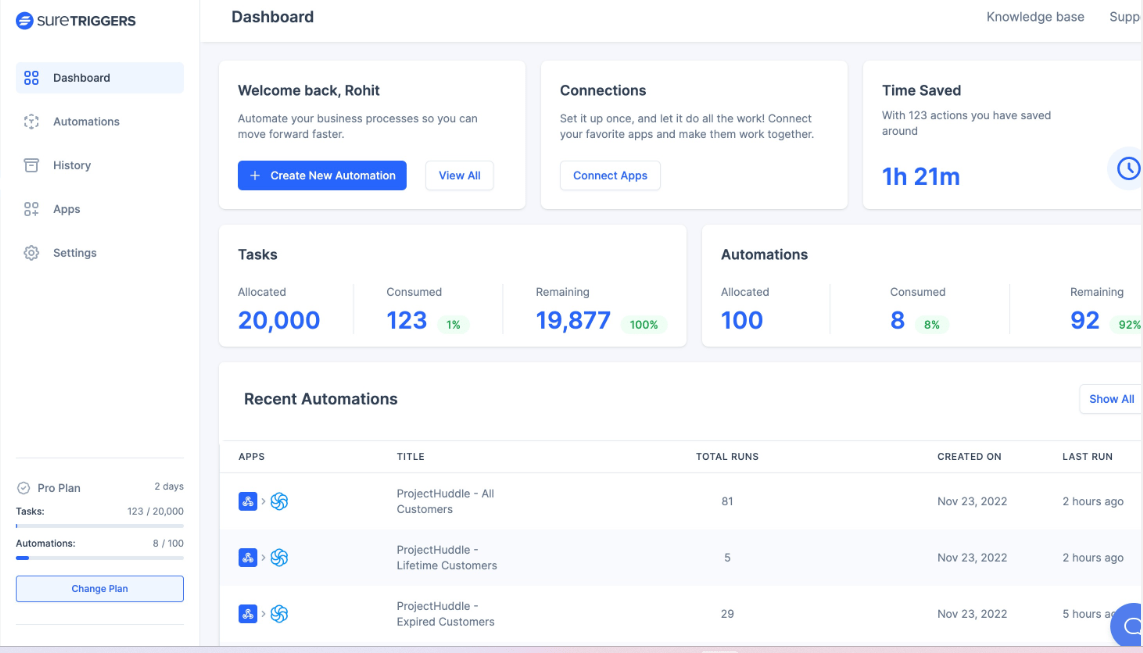
ClickUp: The Best Integration Software
ClickUp is recognized as the best integration software, offering key features and benefits for businesses. Find out why it’s a top choice in 2023.
Key features
The best integration software for businesses in 2023 offers key features that can streamline workflows and enhance data integration capabilities. These features include:
| Feature | Description |
|---|---|
| Pre-built Connectors | Wide range of connectors for seamless system integration. |
| Data Mapping | Mapping data fields between systems for smooth information transfer. |
| Automation | Automated data integration processes to enhance efficiency. |
| Real-time Data Sync | Real-time data synchronization for up-to-date information. |
| Workflow Management | Design and automate complex business processes involving multiple systems. |
| API Management | Manage and control access to APIs for enhanced functionality. |
| Scalability | Ability to scale with business growth and increased data complexity. |
| Security and Compliance | Prioritize data security and compliance standards for protection. |
| User-friendly Interface | Simplify integration for non-technical users with a user-friendly interface. |
| Reporting and Analytics | Monitor data flows, track performance, and identify areas for improvement. |
Benefits for businesses
Integration software offers numerous benefits for businesses. Here are some key advantages:
| Benefit | Description |
|---|---|
| Streamlined Workflows | Enable seamless communication between systems, reducing manual data entry and errors. |
| Increased Productivity | Automate repetitive tasks, freeing employees for more strategic activities, and boosting productivity. |
| Enhanced Data Accuracy | Ensure consistent data updates across systems, minimizing errors for better decision-making. |
| Cost Savings | Reduce manual labour and streamline processes, leading to cost savings. |
| Improved Customer Experience | Access relevant information quickly for a seamless customer experience. |
| Real-time Insights | Enable real-time data synchronization for up-to-date information and better decision-making. |
| Scalability | Easily adapt to changing business needs, allowing scalable operations. |
| Competitive Advantage | Gain a competitive edge through improved operational efficiency. |
| Simplified IT Management | Centralize data management, simplifying IT team’s tasks. |
| Greater Flexibility | Connect various applications and systems for seamless technology adoption. |
Factors to Consider when Choosing Integration Software
When choosing integration software for your business, it’s important to consider factors such as compatibility, scalability, security, real-time data availability, and ease of use.
Read on to discover how these factors can impact your decision-making process and ultimately benefit your company’s operations.
Compatibility with existing systems
Integration software should be compatible with your existing systems to ensure a smooth and seamless integration process. When choosing integration software, it’s important to consider whether it can work well with the applications and platforms you already have in place.
This compatibility is crucial for efficient data sharing, process automation, and workflow management. You don’t want your integration efforts to cause disruptions or compatibility issues within your business operations.
So, make sure the integration software you choose is able to integrate seamlessly with your current systems.
It’s worth mentioning that some of the top integration software mentioned in this article, such as ClickUp and Zapier, are known for their wide range of integrations with popular business tools like HubSpot, Marketo, JitterBit, Integromat, Celigo Cyclr SnapLogic Talend Boomi MuleSoft Oracle Data Integrator 12c SAP Data Services Make.
Scalability
Scalability is an important factor to consider when choosing integration software for your business. It refers to the ability of the software to handle increasing data volumes and growing business needs over time.
As your company expands and evolves, you want a software that can accommodate these changes without any performance issues or limitations. Scalable integration software ensures that you can seamlessly integrate new applications, systems, and processes as your business grows.
This allows for flexibility and agility in adapting to future challenges and opportunities.
Security and Compliance
Ensuring the security and compliance of integration software is crucial for businesses. These tools handle sensitive data and must adhere to industry regulations. Integration software that offers robust security features, such as encryption and authentication protocols, can help protect data from unauthorized access.
Compliance with standards like GDPR or HIPAA is also essential to avoid legal penalties. Businesses should carefully evaluate the security measures provided by integration software before making a decision.
Real-time data availability
Real-time data availability is an important factor to consider when choosing integration software for your business. With real-time data availability, you can access and use the most up-to-date information instantly.
This allows you to make informed decisions based on current data and respond quickly to changes in the market or customer needs. Integration software that offers real-time data availability ensures that your systems are synchronized and updated in real time, eliminating delays and providing accurate insights for better decision-making.
By having access to real-time data, you can improve operational efficiency, enhance customer service, and stay ahead of the competition in today’s fast-paced business environment.
Ease of use
Ease of use is an important factor to consider when choosing integration software for your business. You want software that is user-friendly and intuitive, so your team can quickly learn how to use it without much training.
ClickUp, one of the top integration software mentioned in this article, offers a simple and easy-to-navigate interface, making it a popular choice among businesses. Another example is Zapier, which provides a drag-and-drop interface that allows you to create integrations without any coding knowledge.
With these user-friendly options, you can save time and effort by easily integrating different tools and systems into your business operations.
Conclusion
In conclusion, the article highlights the top 10 integration software options for businesses in 2023. These tools, including ClickUp, HubSpot, and Zapier, can help streamline data integration and boost digital transformation.
By considering factors like compatibility with existing systems and real-time data availability, businesses can select the best integration software to meet their specific needs. With these powerful tools at their disposal, companies can enhance productivity and achieve success in today’s technology-driven world.
Frequently Asked Questions
What is integration software for businesses?
Integration software helps businesses connect and streamline different systems or applications, allowing them to work together efficiently and share data seamlessly.
Why should I consider using integration software for my business in 2023?
Using integration software can enhance productivity, save time, reduce errors, improve communication between systems, and provide better insights into your business operations.
How do I choose the best integration software for my business?
When selecting integration software for your business, consider factors such as compatibility with your existing systems, ease of use, scalability, security features, customer support availability, and cost-effectiveness.
Can small businesses benefit from using integration software?
Yes! Integration software can be beneficial for small businesses as it allows them to automate processes and integrate various applications without requiring a large IT team or excessive manual effort.
Are there any free options available for integration software?
Yes! Some providers offer free versions or trial periods of their integration software that may be suitable for smaller-scale integrations or limited functionality needs.


